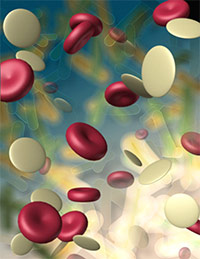
When you’re undergoing cancer treatment, it demands the full attention of your immune system, leaving the door open for bacteria and other germs to sneak in. Use these food-handling tips to reduce the risk of disease and infection.
Food Preparation
- Wash hands thoroughly with warm, soapy water before and after food prep and before eating.
- Keep foods at the proper temperature. Hot foods should be above 140° F, while cold foods should be below 40° F.
- Don’t thaw proteins at room temperature. Use a microwave or place them in the refrigerator with a pan to catch drips.
- Defrosted foods should be used right away and never refrozen.
- Don’t take chances. If any foods look, feel or smell strange, dispose of them immediately.
- Wash produce under running water using a vegetable scrubber. Don’t use soaps, bleaches or other chemical cleaning products.
Cooking
- Always use a clean spoon when tasting foods while cooking.
- Don’t guess when cooking meat. Use a food thermometer for accuracy. Beef should be cooked to 160° F while poultry should be cooked to 180° F.
- If your microwave doesn’t have a turntable, rotate the dish a quarter-turn a couple of times during cooking to ensure that food is evenly heated.
- When reheating leftovers, cover food with a lid or plastic wrap and stir frequently.
Immunotherapy at Issels®: Personalized Non-Toxic Cancer Treatment
Our immunotherapy treatment programs are designed to boost your immune system, allowing it to fight cancer naturally. Visit our website to learn more about how our state-of-the-art cancer treatment has helped many patients achieve long-term remission.





